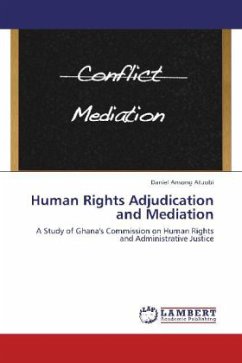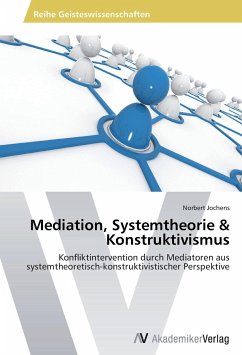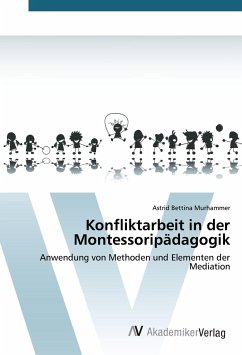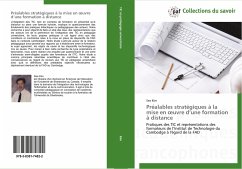
Human Rights Adjudication and Mediation
A Study of Ghana's Commission on Human Rights and Administrative Justice
Versandkostenfrei!
Versandfertig in 6-10 Tagen
52,99 €
inkl. MwSt.

PAYBACK Punkte
26 °P sammeln!
Against the background of unspeakable and blatant abuse of human rights in many African states, many called for measures to protect human rights. Despite the growing number of National Human Rights Commissions (N.H.R.C. s) on the continent, available literature contains scanty information about their daily operations. The purpose of this sociological research is to throw more light on the daily activities and social interactions that occurs in the process of mediating and adjudicating disputes bearing in mind that, although the Commission on Human Rights and Administrative Justice (CHRAJ) is a...
Against the background of unspeakable and blatant abuse of human rights in many African states, many called for measures to protect human rights. Despite the growing number of National Human Rights Commissions (N.H.R.C. s) on the continent, available literature contains scanty information about their daily operations. The purpose of this sociological research is to throw more light on the daily activities and social interactions that occurs in the process of mediating and adjudicating disputes bearing in mind that, although the Commission on Human Rights and Administrative Justice (CHRAJ) is a quasi-judicial institution, it function quite differently from the court. The research data was gathered through direct observations, administration of questionnaire and informal interviews with Investigation officers and Parties in dispute at the head office in Accra. Data analyzed shows that on daily basis the Officers of CHRAJ engage in three main activities as they settle abuses. These are the appearance activities, activities for the definition of the problem and activities for resolving the conflict.












